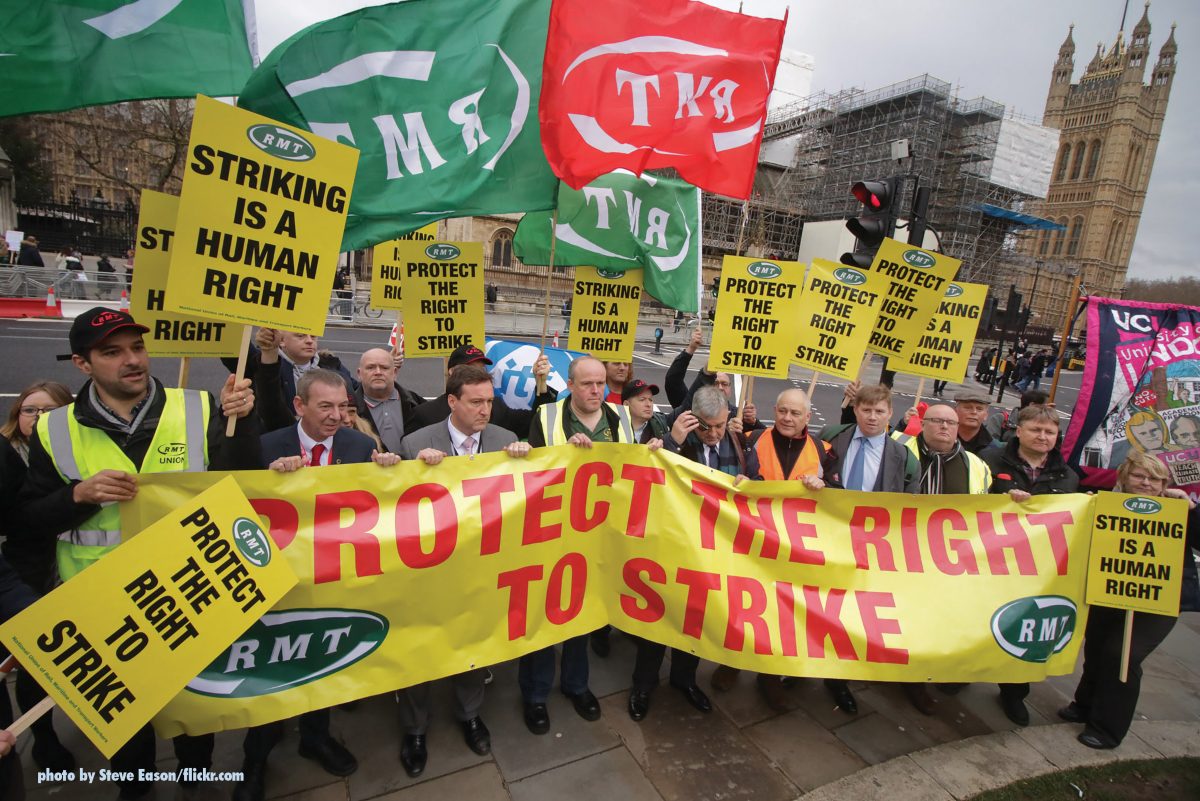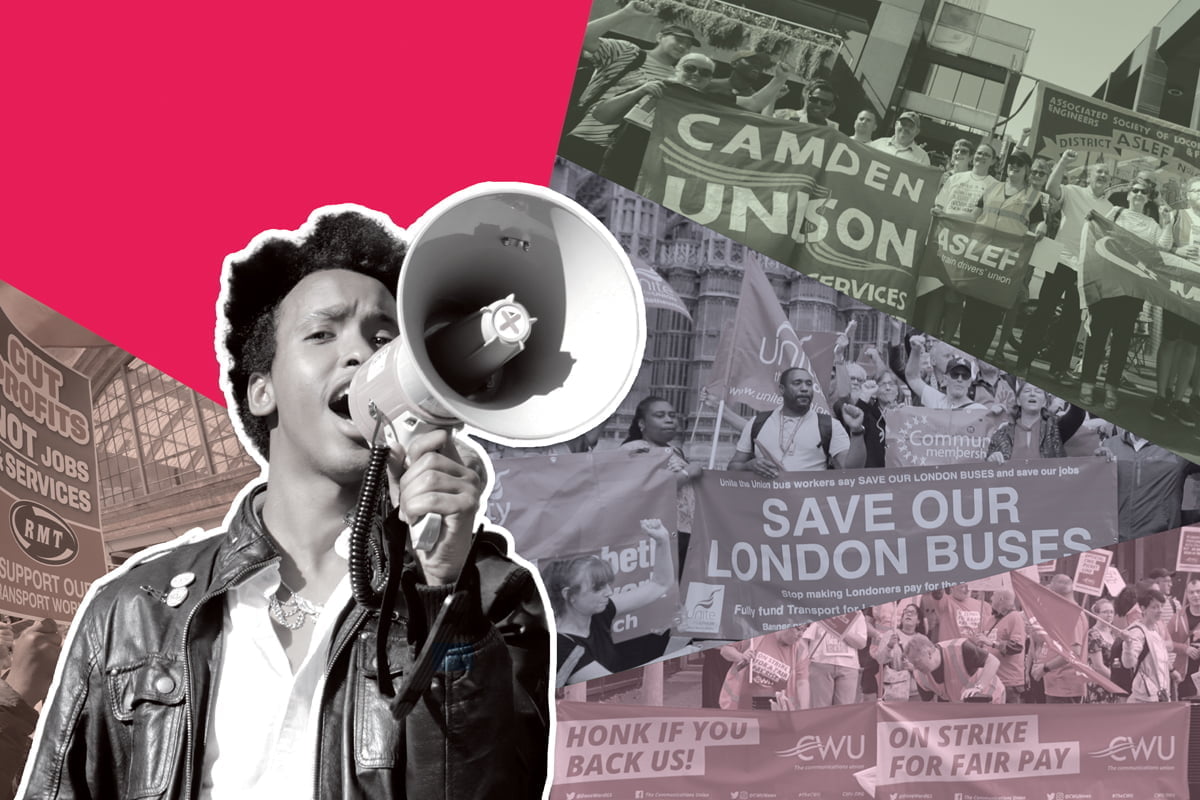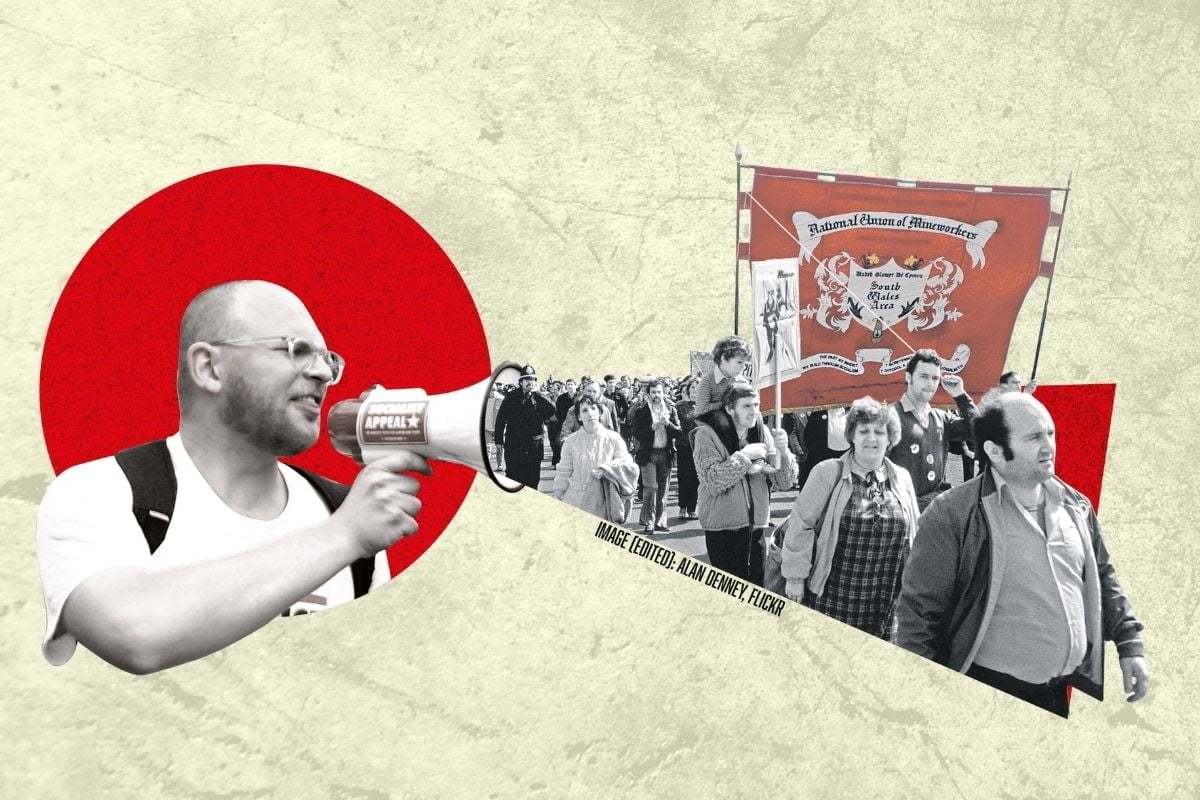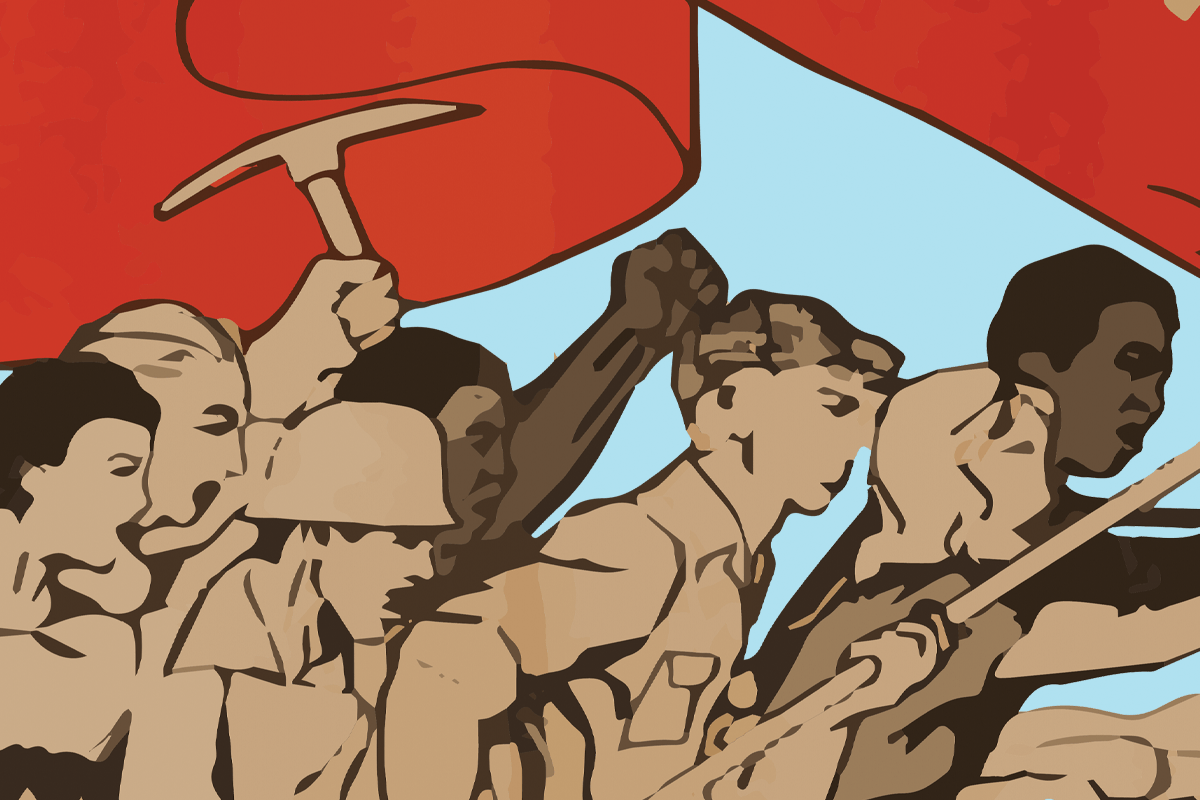Wednesday 1 February is set to be the biggest day of protest and coordinated industrial action for more than a decade, with nearly half a million on strike.
The cost-of-living crisis, with inflation running at over 10%, is forcing workers across the board to either strike or suffer a dramatic cut in real wages.
In turn, the employers, and behind them the Tory government, have been desperately trying to hold the line.
“It seems that this government is dead set on waging a forever class war against workers and their communities,” stated Sharon Graham, general secretary of Unite.
Despite Britain having the most restrictive trade union laws outside of an open dictatorship, the Sunak government is attempting to steamroll through further anti-strike legislation.
The intention, according to the Tories, is to guarantee a ‘basic level of service’ in certain sectors – including healthcare, education, and transport – in the case of strikes.
This is not only directed at the current wave of strikes, but the avalanche of disputes that is certain to come.
Right to strike

This law has nothing to do with ‘safety’, despite Tory claims. Workers are already providing emergency life-and-limb cover in the case of essential services, such as those covered by ambulance workers.
It is the hypocritical Tory government that is risking peoples’ lives through their cuts to the NHS and other vital services. Similarly, under their watch, the workplace safety inspectorate has been cut by 32%.
To accept this anti-union law is to accept a form of ‘self-imposed’ scabbing. It represents an all-out attack on trade unionism and the right to strike.
If trade unions refuse to adhere to this strike-breaking, they could face an employers’ injunction, be taken to court, and forced to pay damages. Failure to comply could mean the sequestration of their assets. Workers who refuse to cooperate could be disciplined, sacked, or imprisoned.
This takes us back to the times of the Taff Vale dispute, at the turn of the last century, when unions were crippled by having to pay damages after going on strike.
Bosses’ courts
To oppose these latest Tory laws, the TUC leaders are simply looking to challenge the government in the capitalist courts. Paul Nowak, the new TUC general secretary, has said that the proposed legislation is “almost certainly illegal”.
It is precisely this “almost” that will allow the judges to side with the Tories and the bosses, as is the general rule when it comes to the bourgeois legal system.
These anti-union laws will not be defeated in the bosses’ courts, as the last forty years have proved.
The pursuit of such a strategy is a clear sign of the trade union leadership’s weaknesses. They are terrified of any form of illegal action.
They have forgotten that the trade union movement was originally built on the back of defying the class laws of the employers. If past generations of trade unionists had not broken these laws, there would be no trade union movement today.
Pentonville Five
In 1972, the Tory government of the time similarly attempted to introduce new anti-union laws with the Industrial Relations Act. Despite wobbles at the top of the unions, rank-and-file workers refused to adhere to these laws.
In particular, dockers in East London maintained their unofficial picket of a container depot, despite the bosses taking out an injunction, which inflamed the dispute.
The transport union was fined by the courts, which the union leadership reluctantly agreed to pay. And on the evidence of private detectives, five shop stewards were arrested and imprisoned in Pentonville Prison.
Without waiting, workers started to take strike action all over the country. Their motto was “an injury to one is an injury to all”. Britain was heading for a general strike.
Fearful of losing control, the TUC stepped in and decided to call a one-day national strike. This could easily have lasted longer.
The government panicked. To get them off the hook, the Tories called in someone that nobody had ever heard of before – a man titled the Official Solicitor – to bail them out. The law was ‘reinterpreted’ and the five dockers were immediately released.
The Tory government was not at all interested in reasoned argument. It took the movement of the working class to force them to retreat. That is the lesson of the ‘Pentonville Five’, as they became known.
Mass mobilisation

No amount of fine discussions or legal arguments will sway this present Tory government. When push comes to shove, only the mass mobilisation of the organised working class, through united industrial action, will force them to back down.
If any union is fined or has its assets seized, or if any union member is sacked or jailed, the full force of the trade union movement must be brought to bear. There must be no compliance with these Tory laws!
Last summer, a collection of union leaders and organisations established a campaign called ‘Enough is Enough’. Rallies organised by the campaign have seen thousands in attendance, in towns and cities up-and-down the country.
In response to this anti-union bill, ‘Enough is Enough’ has held demonstrations outside Downing Street, including one last night. Hundreds turned out in the cold to protest the Tories’ brazen attack.
At these rallies and demos, trade union leaders and activists have called for a mass movement in response to the government’s draconian legislation. Now, these words must be translated into deeds.
There should be an emergency TUC meeting called to agree to a fighting strategy. The 1 February protests and strikes should be used as a platform for calling a 24-hour general strike – as RMT general secretary Mick Lynch has suggested – against the Tories’ attacks, and in support of all workers taking action.
If right-wing union leaders drag their feet or refuse to act in solidarity, then the left unions must come together and forge an alliance.
Unite the Union, with over a million members, can play a decisive role. Sharon Graham has previously stated that: “If [the Tories] force our legitimate activities outside of the law, then don’t expect us to play by the rules.” This is 100% correct.
The trade unions have reached the Rubicon. They must now take a stand, cross this threshold, and organise to smash the bosses’ laws.
Fighting leadership

Sweet words do not pay the bills. We have to rely on our own strength.
But this also requires a militant leadership – one that is prepared to fight. This has been the Achilles’ heel of the British working class throughout history.
The deepening crisis of British capitalism, with its relentless attacks on living standards, has pushed the working class into action.
A key part of this struggle must be to transform the unions into fighting weapons; workers’ organisations that do not simply hold the line, but play a leading role in overthrowing this rotten capitalist system.
Only then will workers be free from the misery and degradation of exploitation, austerity, poverty pay, and Dickensian conditions. Only then will the working class enjoy the full fruits of its labour.






